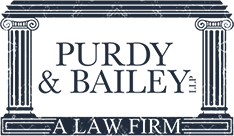When starting a business, selecting the correct entity is a crucial step that can determine your venture's long-term success. The entity you choose has far-reaching implications, impacting vital aspects of your enterprise, like taxation, personal liability protection, and governance. Given the myriad of options available, the decision can be daunting as you attempt to find the most appropriate entity type for your unique needs.
Below are some of the most common entities for consideration:
- Sole Proprietorship: This is the simplest form of business entity, often chosen by single-owner businesses.
- Partnership: This entity is for businesses owned and run by two or more individuals.
- Limited Liability Company (LLC): This popular choice offers the flexibility of a partnership with the liability protection of a corporation.
- S Corporation: S corporations are a special type of corporation that allows profits and some losses to be passed through directly to shareholders without being subject to corporate tax rates.
- C Corporation: C corporations are legally considered separate entities from their owners. They are taxed separately and can be held legally liable, providing a layer of protection for the owners' personal assets.
Keep reading as we delve further into the topic of entity formation, helping you make an informed decision about the best fit for your business venture.
Evaluating Liability Protection
One of the primary concerns for business owners is protecting personal assets from the risks and liabilities associated with their business. Each business entity carries a unique level of personal liability protection, which is crucial for potential business owners to understand. Understanding this essential aspect can help mitigate risks, safeguard your personal finances, and provide a sense of financial security.
Sole Proprietorship: In this entity, the owner and the business are legally one and the same, meaning there's no separation between personal and business assets. If the company incurs debts or legal actions, the owner's personal assets, including their home, car, or savings, could be at risk.
Partnership: Similar to a sole proprietorship, in a partnership, the owners (partners) can be held personally liable for the business's debts and legal obligations. In a general partnership, all partners share this liability. However, in a limited partnership, limited partners have their liability capped at their investment in the business, while general partners retain unlimited personal liability.
Limited Liability Company (LLC): An LLC provides more robust personal liability protection. Owners (members) of an LLC are not personally liable for business debts and legal claims. For example, if an LLC cannot pay its debts, the creditors cannot come after a member’s house or personal bank account.
S Corporation and C Corporation: Both types of corporations offer the strongest personal liability protection. Shareholders (owners) are typically not personally responsible for the corporation’s liabilities. This means that in a situation where the corporation is sued, the shareholders' personal assets are protected. For instance, if a corporation defaulted on a business loan, the shareholders would not be obligated to use their personal assets to repay it.
Remember, while certain entity types may offer stronger liability protections, they may also have more complex rules and tax implications. It's worth consulting with a business law attorney, like ours at Purdy & Bailey, LLP, to help you navigate these complexities and make the best decision for your particular situation.
The Importance of Engaging an Attorney in the Business Formation Process
While entrepreneurs can embark on the business formation process independently, enlisting an experienced attorney's help can be invaluable. A seasoned attorney, like ours at Purdy & Bailey, LLP, can assist beyond merely advising on the most suitable entity type for your business venture.
Our attorneys can help with a wide variety of business formation needs, including:
- Researching and reserving a corporate name
- Preparing and filing your Articles of Incorporation or Articles of Organization with the California Secretary of State
- Filing of the Employer Identification SS-4 with the IRS
- Drafting of vital internal documents such as Bylaws, a Certificate of Secretary for corporations, or an Operating Agreement for LLCs
- Preparing Representations of Shareholders to ensure securities compliance
In short, engaging an experienced attorney during the business formation process not only eases the process but also helps you ensure that all legal obligations are met, warding off potential legal issues down the line.
To learn more about entity selection and business formation, reach out to our law firm online. Our team is standing by to help you and your business venture thrive.

